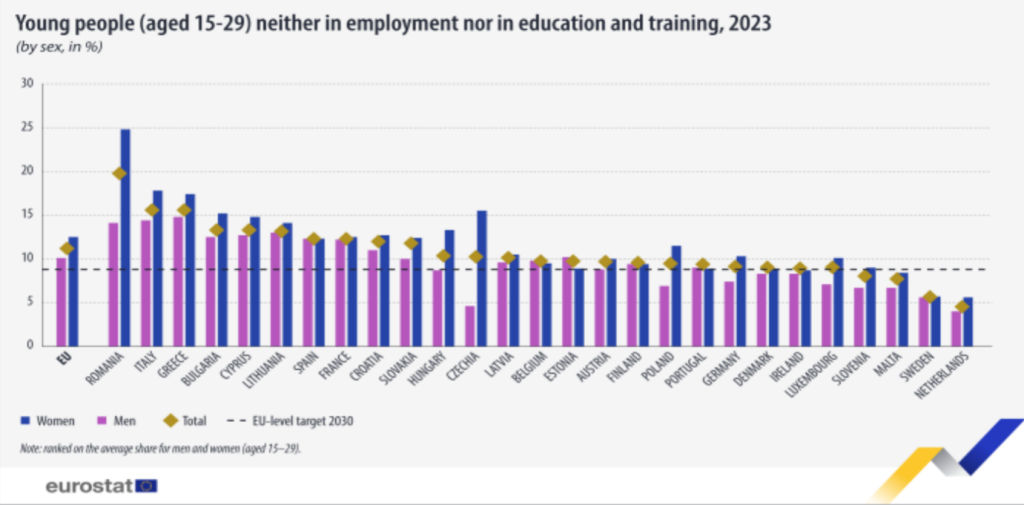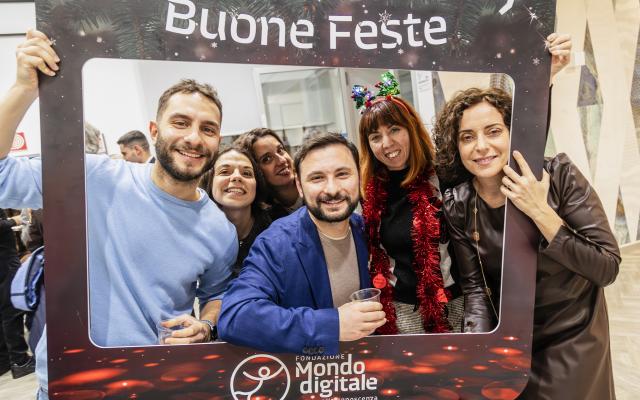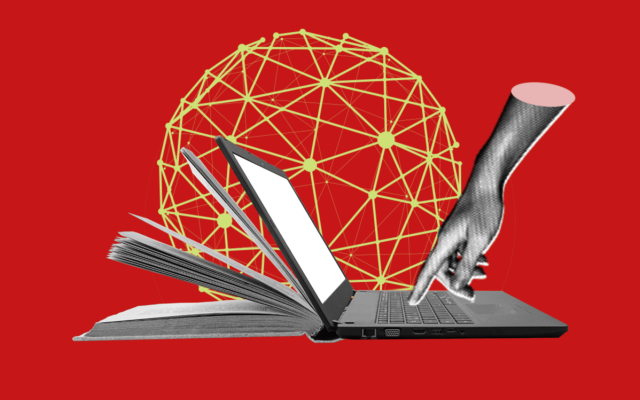A new alliance to reactivate bewildered and disillusioned young people
‘Knowing how to navigate the disruptions encountered during the school-to-work transition calls into question various life skills. Solving problems, making decisions, exercising one's critical sense, finding creative solutions are skills that can preserve one from a chronicisation of the Neet condition. This is the individual dimension of the Neet condition; however, in Italy the permanence in the Neet condition may depend not only on personal factors, but also on environmental and territorial factors: training and work opportunities, local reactivation policies, availability of services, mobility possibilities are all dimensions that in Italy vary greatly from territory to territory. Moreover, the role of the informal dimension (‘black’ work, care duties, serious leisure activities) is rarely considered’ [from National Youth Council, Lost in transition, 2024].
We started dealing with young people who are not studying and not working more than ten years ago, even before the reduction of the number of Neet (Not in Education, Employment or Training) was part of the Sustainable Development Goals of the UN Agenda 2030 (2015). And since then we have always taken into account the multifactorial aspect of their condition. From the first edition of the Meet no Neet project with Microsoft (2012) and from theNew Jobs Workshop (2014-2016) to Skills for a Fresh Start with LinkedIn, we have also tried to leverage young people's passions, the serious leisure, to quickly develop new digital and transversal skills linked to a life project. In each new action, we developed innovative strategies, learning from our own and our partners' experiences, guided by the Real-Time Evaluation methodology (RTE-SI).
From the model of Dig4All, a project led by the L'Albero della vita Foundation, now comes Prodigy, acronym for PROmoting Digital and Green Skills for Youth, an innovative European project for the growth and vocational qualification of Neet people, financed under ESF+ Social Innovation+. The methodology, to be scaled up also in Greece and Bulgaria, envisages a customised educational approach, individual coaching, and the strengthening of social networks among different actors.

In Italy, meanwhile, we continue to engage in other very complex challenges: with LinkedIn Italy, we organised a dynamic and motivational workshop dedicated to 'inactive ’ young people with the aim of providing practical tools to reactivate themselves in the search for employment or to retrain. During the interactive session, young people, thanks to the advice of trainers and experts, learnt how to build an effective LinkedIn profile and create a strategic network of contacts to open up new opportunities for personal and professional growth [see the news item The active job search].
‘Organising this event was an experience that tested my management skills, but also one of the greatest satisfactions. Seeing a project become a reality, feeling the energy of the participants and observing the expressions of satisfaction on their faces was a priceless gift,’ says Miriam Pintore, project officer. ‘The interactive and educational moment, thanks to the intervention of Luigi Centenaro and the LinkedIn experts, offered valuable insights, but what struck me most was the spontaneous networking that was created among the young people. They were so enthusiastic about the opportunity to talk to each other that they didn't want to leave! Despite the differences in age and experience, they were all united in a common mission: that of training to build a solid future. It was exciting to see how, even in such diverse contexts, the desire to grow and learn overcomes all barriers. Managing the ‘direction’ of this event was extremely rewarding. It was a deeply enriching experience and confirmed how important it is to invest in human capital and skills in order to get going again.
The first pilot meeting took place on 30 January at Microsoft House in Milan. Fifty-one young people attended, the majority of them women (60 per cent), with an average age of 26. Only five of them are active, i.e. they are completing their studies or have started working. All the others fall into full Neet status.
The aspect that surprised us most was the ‘spontaneous network’ that was created between all the participants, because of the possibility of physically meeting other people experiencing the same situation of ‘disorientation’. ‘I felt lost,’ said more than a few. And many confessed to the disappointment and frustration of the ‘jobs’.
They all enjoyed the experience and started to share it with their friends, even describing it as ‘perfect and exhaustive’. In the questionnaires filled out after the meeting, they stated that they had acquired new skills to improve their LinkedIn profile and that they would like to learn more about other tools for job hunting and professional networking.
There is no shortage of interesting suggestions, such as organising profession-specific workshops to provide more targeted tools, or meeting companies already during the event.
See you at the next meeting!



